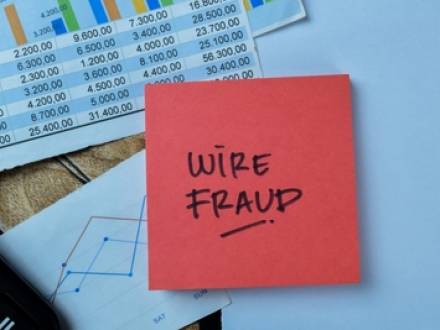TELEPHONES ANSWERED 24 HOURS A DAY
What Is Federal Wire Fraud?
 Wire fraud is a serious federal crime that carries hefty fines and prison time. It has become a much more common offense due to today’s widespread use of technology and the internet. Understanding wire fraud is essential if you are facing wire fraud charges.
Wire fraud is a serious federal crime that carries hefty fines and prison time. It has become a much more common offense due to today’s widespread use of technology and the internet. Understanding wire fraud is essential if you are facing wire fraud charges.
In this article, we will discuss what wire fraud is, explore examples of the crime, and describe its penalties. If you are facing accusations of wire fraud, make sure to hire an Illinois federal wire fraud defense attorney who can protect your rights.
What Is Wire Fraud?
18 U.S.C. 1343 defines wire fraud as using electronic communications across state lines to intentionally deceive someone for financial gain. Since most communication today is electronic and uses the internet, many crimes can be prosecuted as wire fraud. Even if you were to send an email to someone else in Illinois in the process of the alleged crime, that email may be sent through servers outside the state. In that case, it could qualify as interstate electronic communication and thus constitute wire fraud.
The U.S. Department of Justice notes there are four elements to wire fraud:
- The defendant must have voluntarily participated in a scheme to financially defraud someone else.
- The defendant must have had intent to deceive the victim for financial gain.
- Interstate electronic communications were used.
- It was reasonably expected that interstate electronic communications would be involved.
What Are the Penalties for Wire Fraud?
Someone who commits wire fraud may face the following penalties:
- Imprisonment for up to 20 years.
- A fine of up to $250,000 for an individual.
- A fine of up to $500,000 for an organization.
If the crime involved a financial institution like a bank or occurred during a presidentially declared emergency, the defendant can face up to 30 years in prison and a fine of up to $1,000,000.
Each communication can be charged as a separate count of wire fraud, which means that a defendant can receive multiple sentences.
What Are Examples of Wire Fraud?
Wire fraud is a white-collar crime that is used in many schemes. For example:
- Phishing scams: This is when a fraudster sends messages that appear to come from a reputable source to obtain private information. For example, the victim might receive a text message that seems to come from USPS and claims to be holding a package until import fees are paid.
- Identity theft: Identity theft is more common than ever due to the internet and social media, where people tend to reveal private information. Using an email or other electronic message to obtain or use such information can be considered wire fraud.
- Telemarketing fraud: Similar to phishing, telemarketing fraud involves calling someone to sell them a phony product or service which can be counted as wire fraud.
- Investment fraud: Scammers sometimes entice victims into investing money in fraudulent enterprises like pyramid or Ponzi schemes.
Contact a Chicago, IL Federal Wire Fraud Defense Attorney
Defending yourself against a charge of wire fraud should be done with the help of an experienced Chicago, IL federal wire fraud defense lawyer at the Law Offices of Hal M. Garfinkel LLC, Chicago Criminal Defense Attorney. Attorney Hal Garfinkel is a former prosecutor who understands what you are up against and how to build a solid defense against it. Schedule a free consultation today by calling 312-629-0669 now.




